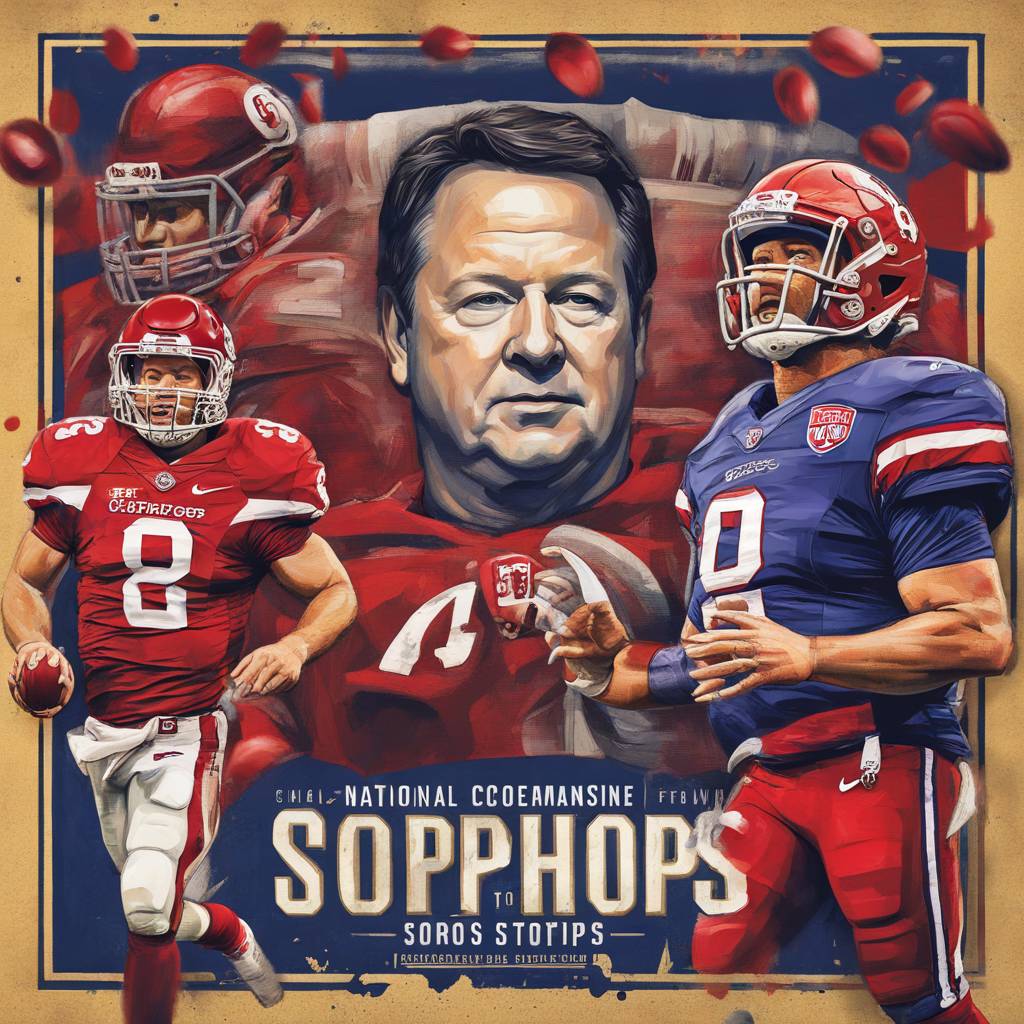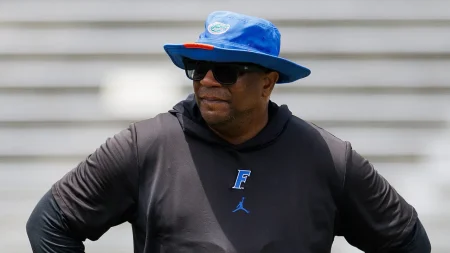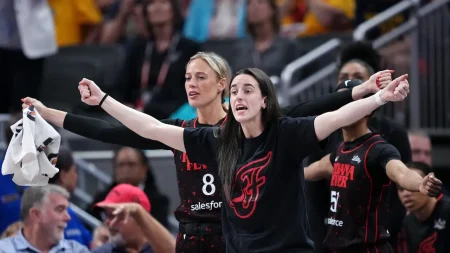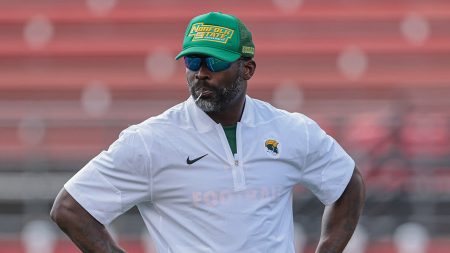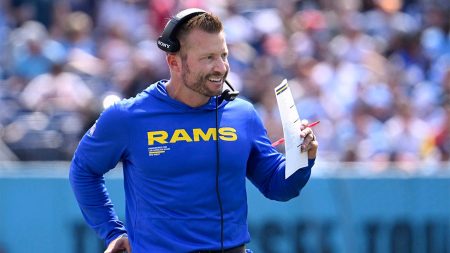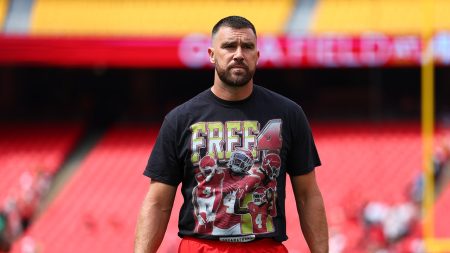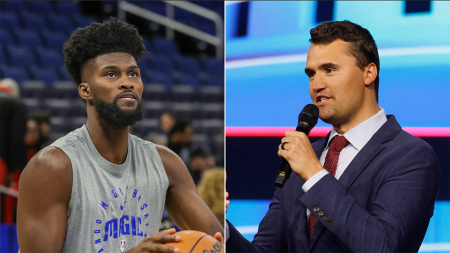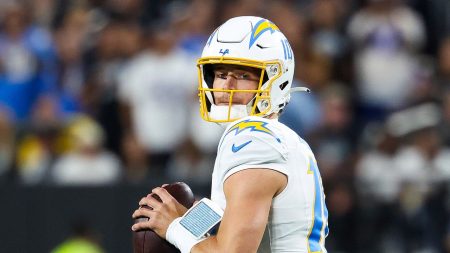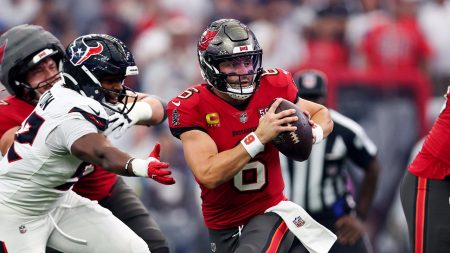Former college football head coach Bob Stoops, who led the Oklahoma Sooners to a national championship and currently coaches the United Football League’s Arlington Renegades, has called for the appointment of a commissioner to oversee the sport. Stoops believes that the current college football model for coaches is unsustainable, as it closely resembles a professional model with no governing body like the NCAA. He emphasizes the need for regulations such as salary caps and contracts to ensure the sustainability of the sport moving forward.
In a recent interview with 92.3 The Fan, Stoops expressed his concerns about the direction of college football and the lack of oversight in the current system. He is not alone in his sentiments, as other coaches and leaders in the sport have also voiced similar opinions in recent months. Stoops argues that without a commissioner to set guidelines and regulations, the sport will continue to operate in a manner that is detrimental to its long-term success.
Former Alabama Crimson Tide head coach Nick Saban recently spoke on Capitol Hill about the changing landscape of college sports, particularly in the era of Name, Image, and Likeness (NIL) deals. Saban suggested that the focus on financial incentives has shifted the priorities of both players and coaches away from player development and personal growth. He revealed that his decision to retire was influenced by the realization that the emphasis in college athletics had shifted drastically.
Saban’s wife pointed out to him the shift in priorities among recruits and their families, noting that financial incentives seemed to be the primary concern rather than the personal and professional development of the players. This realization was a significant factor in Saban’s decision to retire, as he saw that the focus had shifted away from what he believed to be the true essence of college athletics – shaping young people and helping them succeed in life beyond sports.
The sentiments expressed by Stoops, Saban, and other coaches highlight the growing concerns about the direction of college football and the impact of commercialization on the sport. The call for a commissioner to step in and regulate the system is a response to the perceived imbalance and lack of oversight in college athletics. As college sports continue to evolve and face new challenges, it remains to be seen how the leadership and governance of the sport will adapt to ensure its sustainability and the well-being of its participants.
In conclusion, the voices of experienced coaches like Bob Stoops and Nick Saban underscore the need for a reevaluation of the current college football model and the impact of commercialization on the sport. As debates and discussions continue about the future of college athletics, the call for leadership and regulation through the appointment of a commissioner may be a crucial step in ensuring that the values of player development, personal growth, and sustainability are preserved in the sport moving forward. Only time will tell how the landscape of college football will evolve and whether changes will be made to address the concerns raised by Stoops, Saban, and other leaders in the sport.




